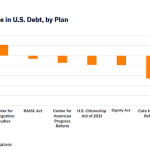
Socialist Antonio Gramsci’s “long march through the institutions” describes the slow and gradual intellectual capture of a society through its influential and powerful institutions, including the church, media, the arts, corporations, schools, and universities, eventually leading to full infiltration.
It takes little awareness to realize that these strategies have succeeded. In the United States, all of Gramsci’s institutions are now socialist in their politics and collectivist in their ethics.
To freedom-minded individuals, arguably the most critical of Gramsci’s institutions are the schools. The greater the extent that children can gain appropriate skills of reason and moral instruction in their formative years—avoiding collectivist indoctrination—the better equipped they will be to defend themselves from a culture that has evolved sharply leftward. However, how can this be achieved if the schools themselves are already captured?
Homeschooling is a solution to childhood indoctrination by a group of people who, in the main, despise parents and their children. Teaching critical race theory, collectivism, and pornography to children is their way of showing it. As Michael Malice often says, “These people want you dead, but they’ll settle for your submission.” Parents shouldn’t offer it.
Academic Outcomes in Traditional versus Homeschool Environments
An analysis of the desirability of traditional schooling should start with an evaluation of its efficacy. A concrete goal of primary and secondary schooling is academic competence as measured by standardized testing, so how do traditionally schooled students perform on this measure?
The results are pathetic. As of a few years ago, fifteen-year-old American students taking the Programme for International Student Assessment ranked at or near the world average for science and reading and well below the world average for mathematics. This has been the case for decades, with essentially no improvement in that time.
In the meantime, homeschooled students are excelling, scoring 12 and 22 percentile points higher than private and public-school students respectively on standardized academic achievement tests. This is the case across race and income demographics. A 2015 study showed black homeschool students scoring 23 to 42 percentile points above black public school students.
These results should not be surprising. Traditional schooling, with its rigid one-size-fits-all approach, is oppressive to the intellect and especially harmful to gifted children, who must stifle their natural drive in favor of group conformity.
For the left-wing academic establishment, this forced mediocrity is a feature, not a bug. By instilling boredom and dulling the senses, students are primed to accept the premises of collectivist ethics and receive any instruction—no matter how absurd—as authoritative.
Homeschooling, on the other hand, prioritizes individuals and their personal potential. Far from stifling children’s natural gifts, such instruction enhances them. Freed from mindless conformity, children can pursue their lessons and interests in an environment that is receptive and natural, instead of rigid and artificial.
Hold On to Your Kids—Social Skills and Happiness
As a complement to academic achievement, homeschooling tends to produce well-rounded children compared to traditional schooling. While diminished social skills are often noted by opponents—without evidence—as a drawback to homeschooling, the facts show the opposite.
A 2006 study used a fifty-five-item Social Skills Rating Scale to gather data on children’s overall social skills, including individual categories of cooperation, assertion, responsibility, and self-control.
The Social Skills Rating Scale indicated that homeschooled students demonstrated above-average social skills and overall scores that were 15 percent higher than the traditionally schooled, including higher scores in each of the individual categories.
Within traditional schools, on the other hand, children are subjected to the relatively modern and harmful phenomenon of peer orientation. From Gordon Neufeld and Gabor Maté’s book Hold on to Your Kids: “Peer orientation refers to the tendency of children and youth to look to their peers for direction: for their sense of right and wrong, codes of conduct, and their very identity. Peer orientation undermines family cohesion, sabotages healthy development, and fosters an aggressive and prematurely sexualized youth culture.”
Leftist inculcation and moral stultification from teachers are hardly necessary when peer orientation, including social media, does the work for them. Today, children and teens suffer from high rates of depression, anxiety, and suicide. Fortunately for homeschoolers, that fate is largely avoided.
Value > Cost
In recent years, homeschooling has grown faster than any other form of education, as shown by Figure 1. This is true across races, incomes, and locations within the US. Many parents switched to homeschooling due to concerns with traditional schools’ practices during the covid panic, including mandatory mask wearing.
Figure 1: Growth of homeschooling in the United States
shepherd_homeschool_graph.jpg
Source: Brian D. Ray, “Research Facts on Homeschooling,” National Home Education Research Institute, accessed January 21, 2024.
Despite this growth, the proportion of K–12 students in the US that are homeschooled is still relatively small, at roughly 5 percent. That figure may increase further if the benefits associated with homeschooling are more widely known and the difficulties more clearly addressed.
In this context, parents may feel that separating from the pack and homeschooling their children are too much of a challenge, specifically with regard to logistics and the perceived inability to manage a child’s homeschooling in combination with their own professional responsibilities.
As Thomas Sowell has observed, in a society with limited resources, there are no solutions, only tradeoffs. Parents pulling their children from traditional schools into homeschooling are indeed looking at a higher degree of involvement and effort in their children’s lives. This might entail a temporary reduction in work hours, income, and social life. In exchange, they receive the peace of mind that comes from knowing that they refused to give over their pride and joy to a system that wishes to dehumanize them. Ultimately, what’s gained is the distinct sense of attachment and pride that comes with raising a productive, accomplished, and truly confident child equipped to succeed in the real world.
Overcoming Inaction
Significant inertia is leaving the vast majority of parents tied to traditional schooling, which has proven to be an obsolete and harmful system. Bureaucrats, labor unions, and ghoulish university professors speaking out against homeschooling—even proposing a nationwide ban—do so because they believe other people’s children are their property. Those who think this way have earned contempt, not the privilege of teaching the next generation. Parents would do well to bring that responsibility back into the home.





